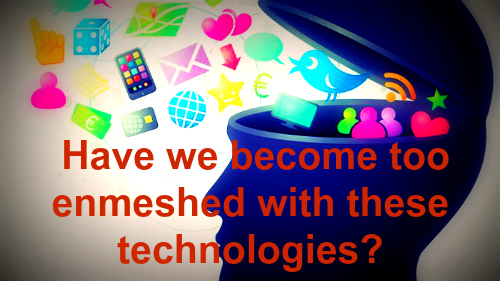A recent article in USA Today warned: “Technology can push our crazy buttons [and] rewire our brains.” Staying connected with digital media can be both a blessing and a curse. For many people, checking in with their devices is getting out of hand.
Howard Rheingold, author of Net Smart: How to Thrive Online, recommends a “mindful use of digital media.” That means we should be aware of what is attracting our attention. He says you should be making decisions instead of “letting the tweet or the buzzing of your BlackBerry call your attention.”
Gary Small, a brain researcher at UCLA, has found the digital technology is changing our brains. Since the human brain changes in response to the environment, our use of the technology alters our brain pathways. He has documented this through MRIs and has reported his findings in scientific journals.
Larry Rosen, author of iDisorder: Understanding Our Obsession With Technology and Overcoming its Hold on Us, says that technology is causing some people to exhibit various psychological disorders. This would include addiction, depression, narcissistic personality disorder, and obsessive-compulsive disorder. He is concerned that we have become too enmeshed with these technologies.
Psychiatrist Steve Daviss of the Baltimore Washington Medical Center says we get feedback from digital technology: “the retweets and bings and pings that come out of the phone every time somebody sends us a text message—create a reward system in the brain that gives us a little squirt of dopamine each time.” For some people, this can lead to something the looks like addiction as their brains respond to digital technology.
These are just a few experts who are concerned about the effects of digital technology on our lives. And I am even more concerned about their impact on a younger generation whose brains are being rewired in ways we can’t even imagine.
 Listen Online
Listen Online Watch Online
Watch Online Find a Station in Your Area
Find a Station in Your Area











 Listen Now
Listen Now Watch Online
Watch Online
